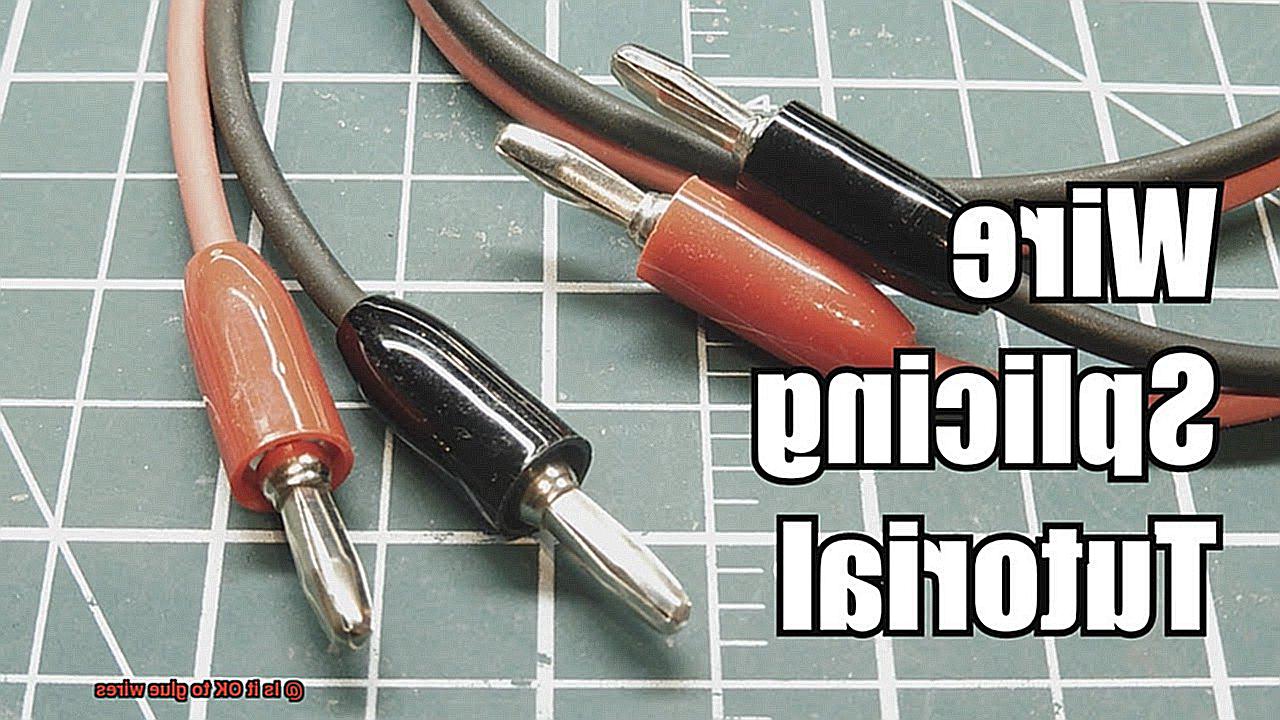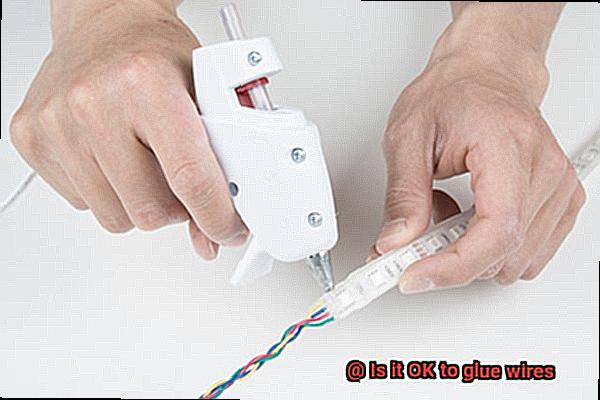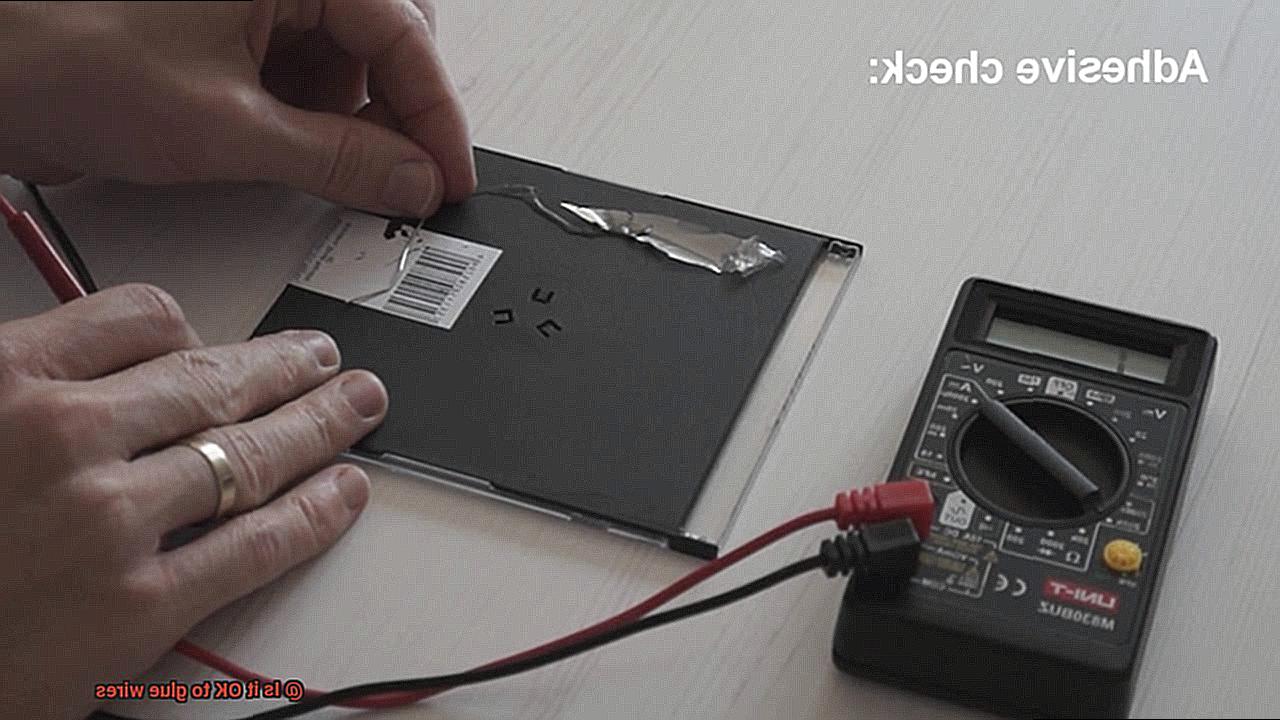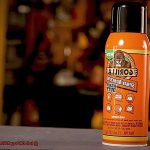Wires, wires, everywhere. These little strands of electrically conductive material are the backbone of our technologically advanced world. They power our homes, charge our devices, and keep us connected. But what happens when a wire breaks or pulls loose? Many of us reach for the glue as a quick fix solution. However, is it really safe to glue wires back together?
In this blog post, we’ll delve into this question and provide you with a definitive answer. We’ll explore the different types of glues available and whether they’re suitable for use on wires. We’ll also look at situations where gluing wires is advisable and others where it’s not.
So why should you care about gluing wires? Well, being able to repair a broken wire can save you time, money, and frustration from having to replace an entire cord or wire. Moreover, knowing how to do it safely is essential.
Are you ready to dive into the world of gluing wires? Let’s get started.
What Types of Glue Are Suitable for Wires?
Contents
- 1 What Types of Glue Are Suitable for Wires?
- 2 Is Gluing Wires a Permanent Solution?
- 3 When Is It Appropriate to Glue Wires?
- 4 Factors to Consider Before Gluing Wires
- 5 The Pros and Cons of Gluing Wires
- 6 How to Choose the Right Adhesive for Gluing Wires
- 7 Safety Precautions When Gluing Wires
- 8 Alternatives to Gluing Wires
- 9 Conclusion
When it comes to gluing wires, not all types of glue are created equal. It is important to choose a glue that can hold the wires securely without damaging their insulation or causing electrical issues. Here are some types of glue that are suitable for gluing wires:
Epoxy
Epoxy is a strong adhesive that can bond different types of materials, including wires. It provides a strong and durable hold and is resistant to heat and moisture. However, it can be messy to work with and requires careful mixing.
Epoxy is the perfect choice for projects that require a strong and long-lasting hold. Whether you’re working on a DIY project or repairing an electronic device, epoxy will provide a secure bond that won’t break down over time.
Silicone
Silicone glue is another suitable option for gluing wires. It is flexible and can withstand high temperatures and moisture. It is also easy to work with and dries clear. However, it may not provide as strong of a hold as epoxy.
If you’re working on a project that involves high temperatures or exposure to moisture, silicone glue would be the best choice. Its flexibility allows it to move with the wires without breaking the bond.
Hot glue
Hot glue is a popular choice for gluing wires because it is easy to use and dries quickly. However, it may not be as durable as other types of glue and may not hold up well in high temperatures.
Hot glue is perfect for temporary fixes or projects that don’t involve exposure to high temperatures. Its quick-drying properties make it ideal for projects that require fast results.
Conductive glue
If you need to glue wires for electronic purposes, conductive glue may be a good option. This type of glue is designed to conduct electricity and can be used to make electrical connections between wires.
Conductive glue is vital for electronic projects where conductivity is key. By using conductive glue, you can create a secure bond that also allows electricity to flow freely between the wires.
Cyanoacrylate
Also known as superglue, cyanoacrylate is a fast-drying adhesive that can be used to bond wires together. However, it is not recommended for use on wires that will be exposed to heat or stress as it can become brittle over time.
Cyanoacrylate is perfect for small projects or repairs where a quick fix is needed. However, it should not be used in situations where the wires will be exposed to heat or stress as it may break down over time.
When choosing a glue for your wires, it is important to consider factors such as strength, flexibility, resistance to heat and chemicals, and conductivity. Always read the label carefully and choose a glue that is specifically designed for the materials you will be working with. Additionally, always use caution when working with any type of glue and follow the manufacturer’s instructions carefully.
Is Gluing Wires a Permanent Solution?
The answer isn’t straightforward, as it depends on several factors that need to be taken into account.
First, not all adhesives are created equal. Some are more durable and long-lasting than others. Epoxy, for example, is known for its strength and durability and is often used in industrial applications. However, it’s crucial to ensure that the surfaces being glued are clean and free of any residue or oils that could weaken the bond.
Secondly, the materials being glued together also play a significant role. Some materials, such as wood and paper, are easier to glue than others like plastic or metal. You need to choose an adhesive that is suitable for the materials being bonded.
Lastly, you must consider the conditions under which the glued item will be used. If the item will be exposed to extreme temperatures or moisture, a more permanent adhesive may be necessary. Sometimes, using a combination of adhesives or other methods like soldering might be required to ensure a secure bond.
When Is It Appropriate to Glue Wires?
The answer is not always straightforward, and that’s why I have conducted extensive research on the subject. Let me share my insights with you.
Firstly, let’s talk about when it’s appropriate to glue wires. If you need a permanent connection between wires that won’t be exposed to stress or strain, then gluing them might be the way to go. This technique is especially useful for small projects where soldering or crimping may be overkill.

However, if the wires are going to be exposed to vibrations or any type of movement, gluing them may not be strong enough to hold the connection in place over time. In these cases, it’s better to use a more secure method like soldering or crimping.
Choosing the right type of glue is also essential. Not all glues are created equal, and some may not be suitable for use with wires. Hot glue may seem like a good option since it dries quickly, but it can become brittle over time and weaken the bond. It’s critical to choose a glue that is specifically designed for use with electrical components.
When deciding whether to glue wires, there are several factors to consider. Here are some sub-topics to help you make an informed decision:
- Stress and strain: Consider whether the wires will be subjected to any stress or strain that could compromise the bond.
- Type of glue: Choose a glue that is specifically designed for use with electrical components.
- Environmental conditions: Consider whether the project will be exposed to extreme temperatures or moisture that could weaken the bond.
- Suitable materials: Ensure that the surfaces you’re gluing are clean and suitable for bonding.
In conclusion, whether or not to glue wires depends on the specific circumstances of your project. Always consider the level of stress and strain that the wires will be subjected to before deciding on a bonding method. And remember, if you’re unsure, it’s always best to consult with an expert or do some additional research before proceeding.
Factors to Consider Before Gluing Wires
While it may seem like a simple solution, there are several crucial factors to consider before proceeding. As an expert in this field, I have compiled some essential research notes to help you make an informed decision.
First and foremost, the type of glue you use is critical. Not all adhesives are created equal, and some may even damage the insulation or conductors of the wire. It is crucial to use a glue that is specifically designed for electrical applications, such as epoxy resin or cyanoacrylate. This will ensure that your wire connection is secure and functional.
Secondly, you need to consider the environment in which your glued wires will be used. Will they be exposed to extreme temperatures, moisture or vibrations? If the answer is yes, a more durable glue may be required to ensure a secure connection that remains intact over time.
Thirdly, it is essential to think about the size and gauge of your wires. Thicker wires may require a stronger adhesive to ensure a reliable bond, while smaller wires may need a gentler adhesive. Using an adhesive that matches the wire size and gauge will ensure that your connection remains stable under pressure.

Lastly, before applying any glue, ensure that your wires are thoroughly cleaned and prepared. Any dirt, grease or oil on the wire surface can weaken the bond between the wire and glue. Take extra care to clean and dry your wires before applying any adhesive.
The Pros and Cons of Gluing Wires
Connecting wires can be a challenging task, and with so many methods available, it can be overwhelming to choose the right one for your project. One increasingly popular option is gluing wires. But before you jump in, it’s essential to weigh the pros and cons of this method.
Let’s start with the advantages. Gluing wires can be a quick and easy way to secure them together. The readily available adhesive can be applied quickly, making it a convenient option for those who need to make a connection in a hurry. Additionally, it’s an excellent choice when working in tight spaces or dealing with difficult-to-reach wires where other methods may not be feasible.
Moreover, gluing wires can provide a secure connection that doesn’t come loose over time. High-quality glue products designed specifically for use with wires form a robust bond between them, ensuring that they remain in place even under stress. This makes it an ideal solution when dealing with delicate or fragile components.
However, there are also some downsides to consider when gluing wires. One major disadvantage is that removing glue can be challenging if the wires need to be separated in the future. If not done carefully, repairs may result in damage to the wires or other components.
Another concern is that gluing may not be suitable for all types of connections. When working with high-voltage or high-amperage wiring, it may not provide a strong enough connection to handle the load. It may also not be effective when connecting wires with different gauges or materials.
How to Choose the Right Adhesive for Gluing Wires
When it comes to gluing wires, you want to make sure that you choose the right adhesive. A weak bond can lead to electrical issues and safety hazards, so it’s important to consider several factors before making your selection. Here are five things to keep in mind when selecting an adhesive for gluing wires.
Conductivity
One of the most important things to consider when gluing wires is conductivity. If you’re using the wires for electrical or electronic applications, you need an adhesive that is electrically conductive. This ensures that the current can flow through the wires without interruption. Make sure to check the specifications of the adhesive to ensure it meets your conductivity needs.
Temperature Resistance
Consider the temperature range that your wires will be exposed to. If they will be subjected to high temperatures, like in automotive or industrial applications, make sure to select an adhesive that can withstand those temperatures without breaking down or losing its adhesive properties. Failure to choose a temperature-resistant adhesive can lead to a weak bond or even a complete failure.
Flexibility
Wires often bend and flex, so it’s essential to choose an adhesive that can handle movement without cracking or breaking. This is especially important if your wires will be subject to regular movement or vibration.
Chemical Resistance
If your wires will be exposed to chemicals or other substances, you need an adhesive that is resistant to those substances. Choosing an adhesive that is not resistant can cause the bond to weaken and fail over time.
Insulation Compatibility
Another factor to consider when choosing an adhesive for gluing wires is insulation compatibility. Some adhesives may react with certain insulation materials and cause damage or weakening of the wire. Make sure to check the manufacturer’s instructions and choose an adhesive that is compatible with your wire insulation material.
Safety Precautions When Gluing Wires
When it comes to gluing wires, safety is paramount. To ensure you handle the materials safely and reduce the risk of accidents or injuries, there are a few precautions you should take.
Firstly, make sure you work in a well-ventilated area. This prevents fumes from the glue or other materials from building up and causing harm. Consider wearing protective gear, especially when working with strong adhesives.
Also, ensure that the wires are properly prepared before gluing. Strip any insulation or coatings from the wires to create a strong bond with the adhesive. However, be careful not to damage the wires during this process.
Using the appropriate type of glue is also vital. Different types of adhesives have different properties and are designed for specific applications. For example, some glues may be better suited for high-temperature environments or bonding to certain materials.
Lastly, follow all the instructions and guidelines provided by the manufacturer of the glue or adhesive being used. This includes information on proper application techniques and any safety precautions or warnings specific to that product.
By taking these safety precautions when gluing wires, you can work with the materials in a safe and responsible manner. This will reduce the risk of accidents or injuries and ensure a successful and long-lasting bond between your wires and adhesive.
To summarize, here are some key safety tips to keep in mind when gluing wires:
- Work in a well-ventilated area
- Wear protective gear when necessary
- Ensure the wires are properly prepared before gluing
- Use the appropriate type of glue for the job
- Follow all instructions and guidelines provided by the manufacturer
Alternatives to Gluing Wires
Fortunately, there are numerous alternatives that are tailored to different wires, environment, and preferences.
Wire connectors or splices are a popular choice. These tiny devices come in various shapes and sizes and can join two or more wires together. They work by twisting the wires together and securing them with a cap or clamp. Wire connectors are fantastic for smaller gauge wires or for applications that require frequent changes or adjustments.
Crimping is another alternative to gluing. This method involves compressing a metal sleeve around the wires with a special tool, ensuring a secure and permanent connection. Crimping works well with larger gauge wires or applications that require a strong connection.
Soldering is a more traditional method for creating a strong and reliable connection between wires. This technique involves melting a metal alloy onto the wires to create a solid bond. Soldering can provide an incredibly durable connection, but may not be ideal for all wire types or environments.
Sometimes, no additional materials are required at all for connections. If two wires are tightly wound together or held in place by mechanical fasteners, gluing may not be necessary.
Choosing the best alternative for your needs requires taking several factors into consideration. The type of wire you’re working with, the environment it will be used in, and how frequently you may need to make changes or adjustments are all important considerations to weigh. You should also consider the strength of the connection you require – will crimping suffice or do you need something more robust like soldering?
dqkWmz6sX7w” >
Conclusion
In summary, gluing wires can be a convenient and effective solution for repairing broken or disconnected wires. However, it is crucial to select the appropriate adhesive that is suitable for electrical applications and take into account factors such as temperature resistance, flexibility, chemical resistance, insulation compatibility, and conductivity. Safety should also be a top priority when working with adhesives to avoid accidents or injuries.
While gluing wires can provide a secure connection that won’t come undone over time, there are also some drawbacks to consider. Removing glue can be challenging if the wires need to be separated in the future, and it may not be ideal for all types of connections or environments.
Luckily, there are several alternatives available such as wire connectors or splices, crimping, soldering, or even tightly winding wires together without additional materials. Choosing the best alternative requires taking various factors into consideration such as the type of wire being used, the environment it will be used in and how often changes or adjustments may need to be made.
Ultimately, whether you opt to glue wires or use an alternative method depends on your specific circumstances and requirements.






